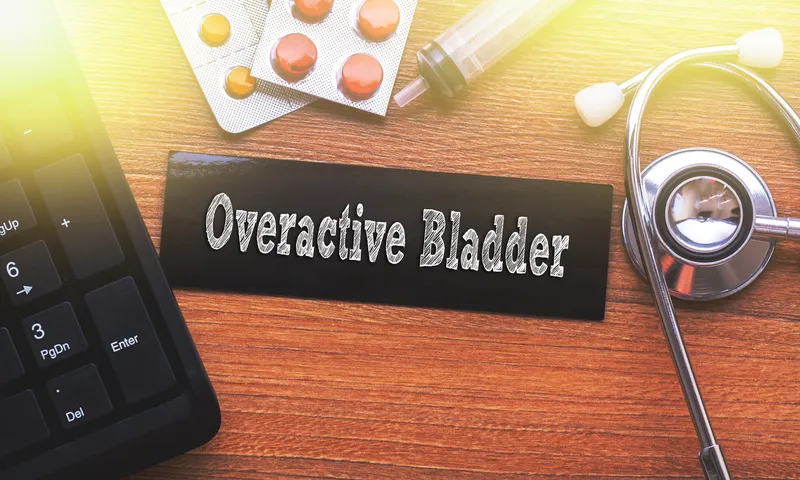Can an Overactive Bladder Cause Dehydration

If you’re constantly running to the bathroom or dealing with sudden, strong urges to urinate, you might be tempted to drink less water to avoid the inconvenience. It’s a common response for people managing overactive bladder (OAB), but it can backfire in a surprising way. This leads to an important question: can an overactive bladder cause dehydration?
Technically, OAB doesn’t directly cause dehydration. But the behaviours that come with managing it often can. Many people with OAB limit their fluid intake to try and cut down on trips to the washroom, especially in social situations or while travelling. Unfortunately, not drinking enough can leave you dehydrated, and might make bladder symptoms worse.
Overactive bladder (OAB) is a condition where the bladder muscles contract involuntarily, causing frequent urges to urinate, even when the bladder isn’t full. This can lead to urgency, nighttime trips to the bathroom, and sometimes incontinence. Dehydration, on the other hand, happens when your body loses more fluids than it takes in, leading to symptoms like dry mouth, fatigue, dizziness, and dark-colored urine. People with OAB may try to drink less to avoid symptoms, but that strategy can backfire. Staying properly hydrated is still essential for healthy bladder function and overall well-being.
When you don’t get enough fluids, your urine becomes more concentrated. That can irritate the bladder lining, making you feel an even stronger urge to go. In some cases, it can even lead to urinary tract infections, which further aggravate overactive bladder symptoms. It’s a frustrating cycle: you drink less to pee less, but your bladder becomes more irritated and reactive.
It’s also worth noting that not all fluids are equal. Some people with OAB reach for beverages like coffee, tea, or sodas instead of water, not realizing that caffeine and artificial sweeteners can actually make urgency worse. Dehydration combined with bladder stimulants is a double hit for your urinary system.
So, what’s the solution? Staying hydrated with the right fluids as they can actually help your bladder behave better. The main one being simply water. You don’t have to chug huge amounts, but sipping small amounts throughout the day can keep your urine diluted and your bladder calmer. It’s also helpful to monitor when you drink rather than how much. Avoiding large quantities of fluid before bedtime, for example, can reduce nighttime trips to the bathroom without depriving your body of hydration.
Takeaway
Managing OAB is a balancing act, and dehydration is a risk that often gets overlooked. If you’re concerned about how much (or how little) you’re drinking, talk to your doctor or a pelvic health specialist. Hydration plays a bigger role in bladder health than many people realize, influencing everything from urine concentration to bladder irritation. Avoiding fluids might seem like a quick fix for urgency, but in the long run, it can actually make symptoms worse. Finding the right balance between staying hydrated and managing bathroom trips could be the key to feeling more in control and more comfortable throughout your day.
IMPORTANT NOTE: The above information is intended to increase awareness of health information and does not suggest treatment or diagnosis. This information is not a substitute for individual medical attention and should not be construed to indicate that use of the drug is safe, appropriate, or effective for you. See your health care professional for medical advice and treatment.


